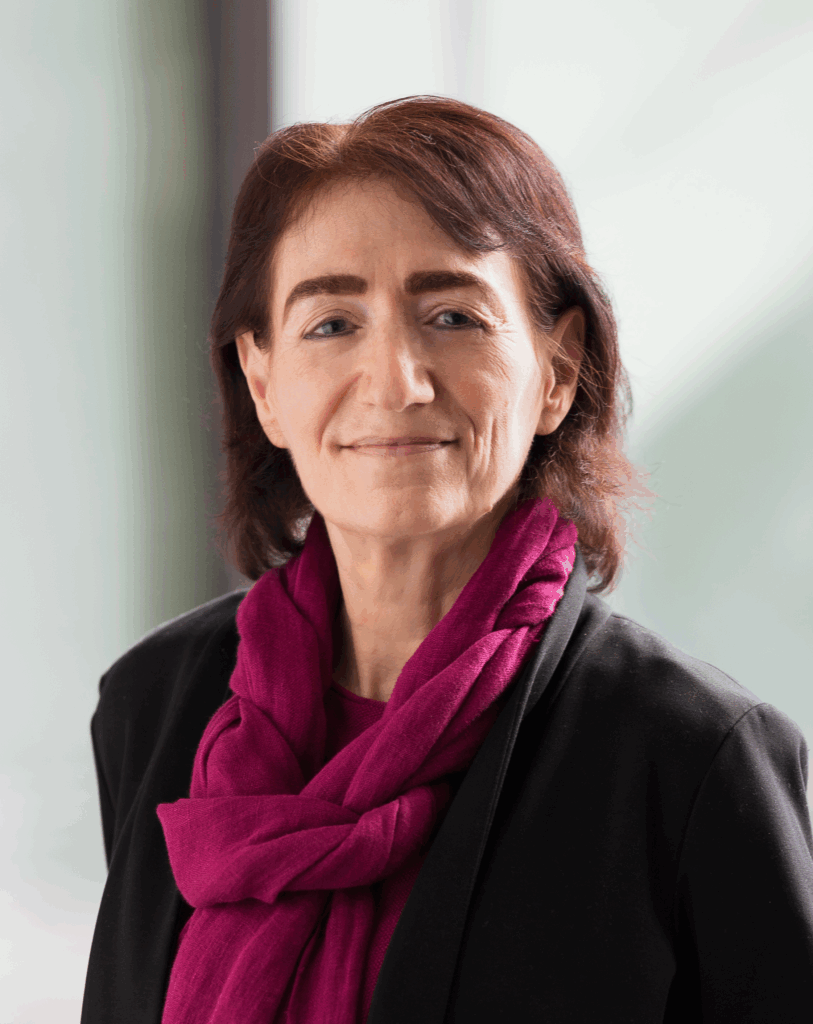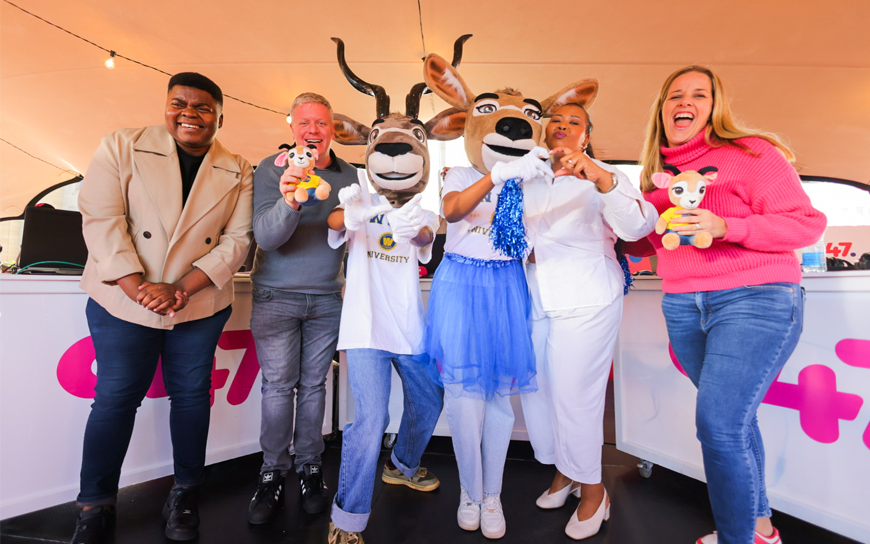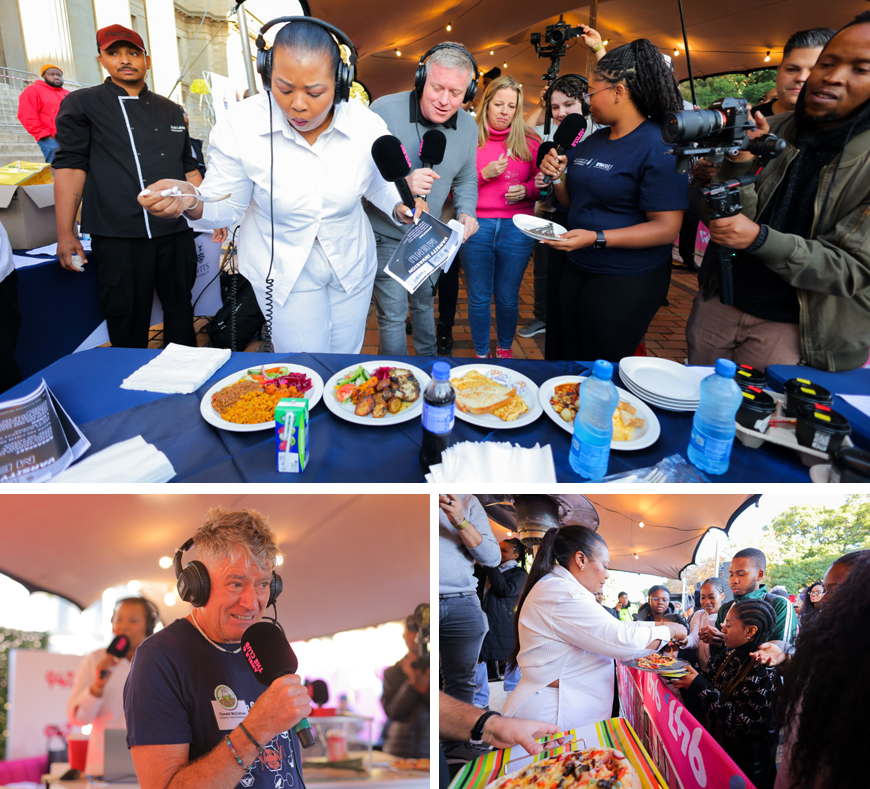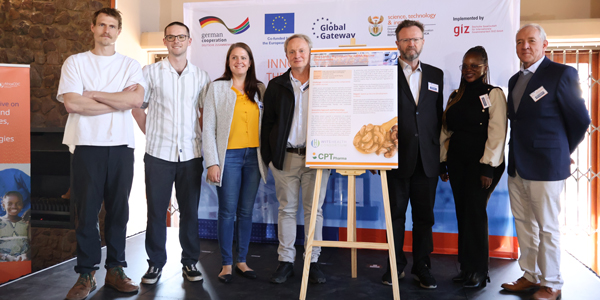May 2025
The US Witsie
THERE IS LIGHT EVERYWHERE if only we know where to look. And our Wits researchers are telling us that this is the century of light (as you’ll see in the story below). We hope that this newsletter will continue to inspire and inform our fellow graduates, so that we continue to serve our communities here in the United States, and at home.
Wits Fund Board Member Appointed Dean at UMass Boston
Dr Hazel Sive, Wits Fund Board member and Wits graduate, has been appointed Dean of the College of Science & Mathematics and Professor of Biology at the University of Massachusetts, Boston.
Receiving the congratulations of her fellow Wits Fund board members, Dr Sive said that she was inspired by her “formative and seminal Wits experience to move into the important realm of public higher education in the U.S.”.

The announcement from the Provost at UMass, Boston reads:
“It is with great pleasure that I announce the appointment of Hazel Sive, PhD, as the dean of the College of Science & Mathematics and Professor of Biology effective August 18, 2025. I am fully confident that we will benefit hugely from Dr. Sive’s proven record of transformational leadership and scholarly achievement.
Dr. Sive joins us from Northeastern University where she has served as Dean of the College of Science since 2020. For twenty-eight years prior, she was Professor of Biology at the Massachusetts Institute of Technology (MIT), Member of the Whitehead Institute, and Associate Member of the Broad Institute. A native of South Africa, Dr. Sive received the B.Sc. from the University of Witwatersrand (Wits), Johannesburg, South Africa and the Ph.D. from Rockefeller University, New York.
Dr. Sive’s groundbreaking research focuses on neurodevelopmental disorders, as well as fundamental processes underlying brain and craniofacial development. She is a distinguished educator, a MacVicar Faculty Fellow, MIT’s highest teaching accolade and twice winner of the prestigious School of Science Teaching Award. An accomplished leader, Dr. Sive was Associate Dean for the MIT School of Science; Founding Director of the MIT Jameel World Higher Education Lab; and Founding Director of the MIT-Africa Initiative. At Northeastern, Dr. Sive is Chair of the new Africa Global Initiative. Among other accolades, in 2022, Dr. Sive was elected a Fellow of the American Association for Advancement of Science.”
Congratulations, Dr Sive!
Read more here.
WITS INVADED BY MORNING RADIO



The campus came alive this morning when Anele & The Club on 947 radio show broadcast live from outside the Great Hall.
The 947 Varsity Invasion by the famous breakfast show host Anele Mdoda and her team put the spotlight on Wits for the duration of its 3-hour broadcast, filled with lively interviews, exciting student participation and some unique culinary adventures.
Highlighting the ongoing annual Yebo Gogga Yebo amaBlomo festival, organiser Donald McCallum and his team also served the presenters and students with some ‘creepy’ dishes: nutritious mopani worms and stinkbug pizzas!
Meanwhile, Jerome September, Dean of Student Affairs at Wits, commented on what makes Wits special: “Wits is special because of its people who make this a great University — its staff and students who all work together to ensure student success, both within and beyond the classroom.”
Students enthusiastically participated throughout the morning and won prizes from various sponsors.
Additionally, Anele and the team hosted a Masterclass session with VoW FM and radio students on best practices in broadcasting.
The vibrant atmosphere was amplified by the University’s top five campus songs, setting the perfect soundtrack for an unforgettable morning at Wits.
Read more here.
As we feel gratitude for the blessings in our lives, one way to pay it forward is through making an impact in a person’s life that will uplift them, and their families, for generations to come.
DONATE HERE
LIGHT IS THE SCIENCE OF THE FUTURE

Scientists on the African continent have made notable contributions to photonics research.
Light is all around us, essential for one of our primary senses (sight) as well as life on Earth itself. It underpins many technologies that affect our daily lives, including energy harvesting with solar cells, light-emitting-diode (LED) displays and telecommunications through fibre optic networks.
The smartphone is a great example of the power of light. Inside the box, its electronic functionality works because of quantum mechanics. The front screen is an entirely photonic device: liquid crystals controlling light. The back too: white light-emitting diodes for a flash, and lenses to capture images.
We use the word photonics, and sometimes optics, to capture the harnessing of light for new applications and technologies. Their importance in modern life is celebrated every year on 16 May with the International Day of Light. The last century was based on electronics and controlling electrons. This century will be dominated by photonics, controlling photons.
Read more here.
WITS RESEARCHERS WIN AWARD FOR CONVERTING CASHEW WASTE INTO KEY VACCINES INGREDIENT

Scientists win prestigious international award for pioneering a biodegradable, Africa-sourced ingredient that could transform the future of vaccine production.
The Antiviral Gene Therapy Research Unit (AGTRU) and the Synthetic Organic Chemistry Unit in the School of Chemistry at Wits have received one of six international innovation awards under the GIZ SAVax programme. Their project, Local large-scale production of ionisable lipids, secured a R7-million grant to develop vaccine-enabling compounds derived from cashew nutshell liquid – a by-product of the cashew industry that is abundant across Africa.
This breakthrough positions Wits and South Africa as a leader in developing bio-renewable materials for mRNA vaccines and supports the African Union’s target of producing 60% of the continent’s vaccines locally by 2040. Currently, Africa produces only 1% of the vaccines it uses.
Professor Patrick Arbuthnot, head of AGTRU, said the award comes at a pivotal time. “Ionisable lipids have important applications for vaccines, and the potential to scale this technology is promising. We are excited to develop a sustainable, locally sourced alternative.”
The Wits team has successfully transformed cashew nutshell liquid into hydrogenated cardanol. This is a cheap and sustainable way to assemble ionisable lipids, which can be custom-designed to carry mRNA. This is an accessible alternative for low- and- middle-income countries. Indeed, Africa produces about 54% of the world’s cashew nutshell liquid, which is usually discarded as waste.
Read more here.
Wits Virtual Tour

See Wits University in Action! Want a closer look at life on campus? For a Virtual Tour of Your Old Haunts, Click here.
PODCAST | #HackYourFuture | Ep.2: Finding Your Balance at University: This episode of Hack Your Future explores the balance between academics and social life with insights from top minds at Wits University. From childhood influences to the pressures of campus life, hear from professionals, professors, and students who have navigated the highs and lows of university. Learn how to adapt, stay focused, and still have fun along the way.
Love this newsletter? Have some suggestions? Want to tell us your story of how you got here? Please write in and tell us: https://witsfund.org/contact/
Other ways to Give
Corporate Matching Gifts
To include The University of the Witwatersrand Fund Inc (#13-390 2012) in your employer’s matching gift program, please follow your company’s corporate matching guidelines. Donations can be sent to:
The University of the Witwatersrand Fund, Inc.
PO Box 7101
New York, NY 10150